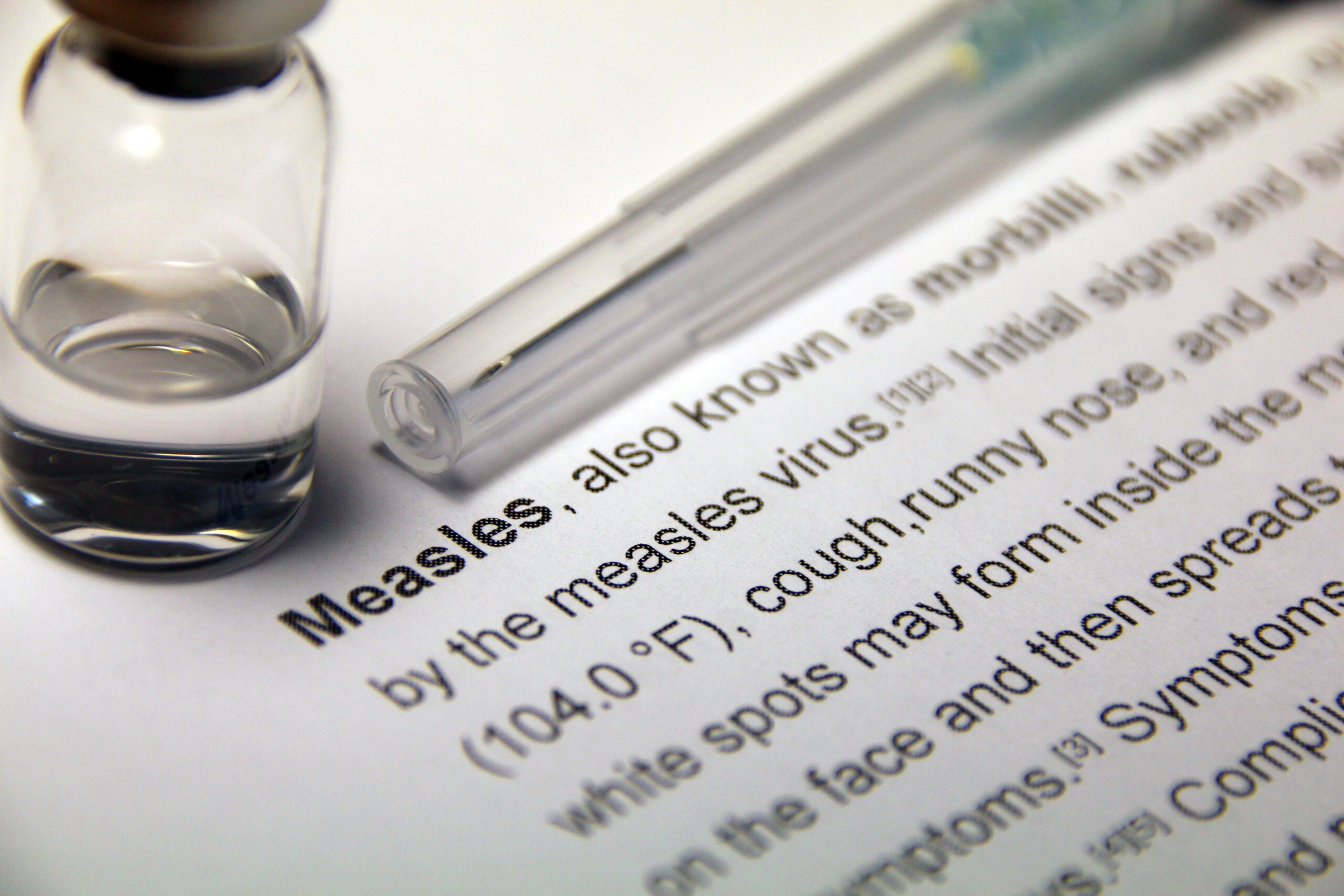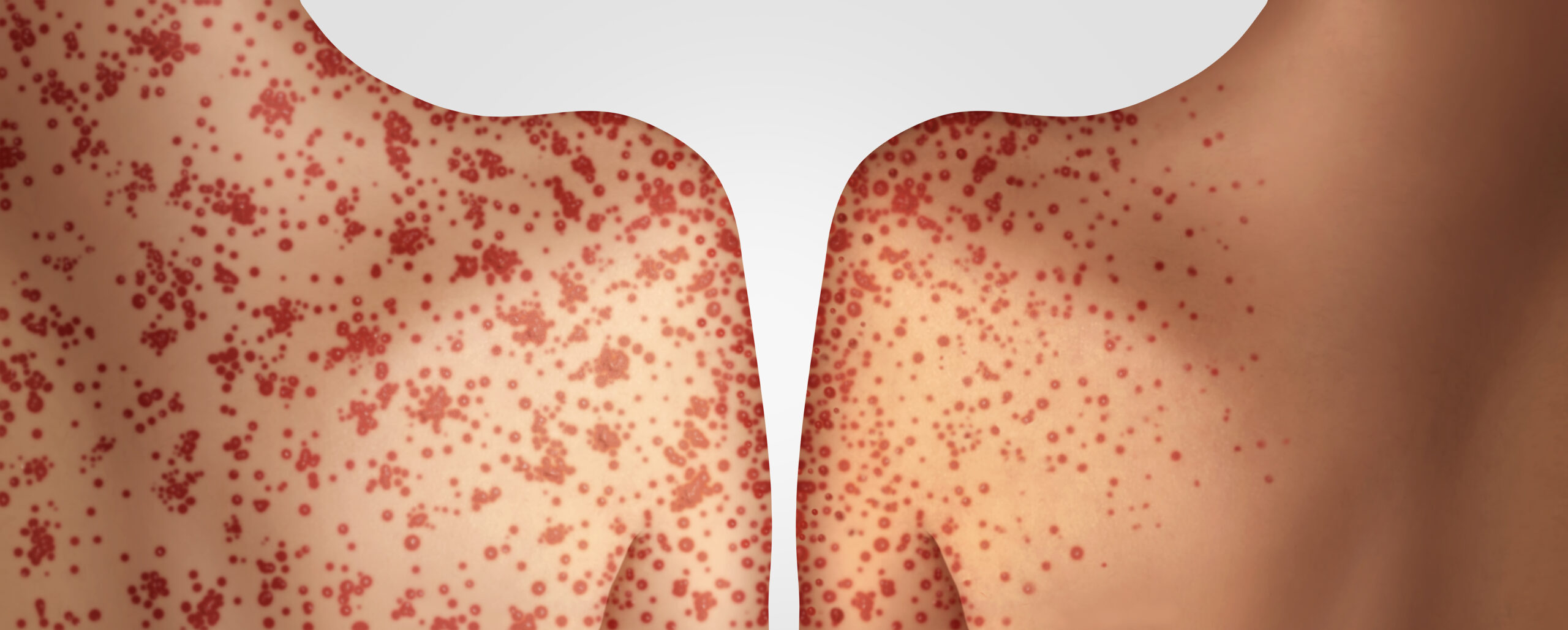Recent outbreaks of measles have people thinking about the disease again. If you’re Generation X or a Millennial, are you protected against measles?

Here are the facts. A measles vaccine has been available since 1963, and most children receive it as a routine vaccination. Until 1989, however, only a single dose was required.
In 1989, the Advisory Committee on Immunization Practices, the American Academy of Pediatrics, and the American Academy of Family Physicians (AAFP) determined that a second dose of the MMR (measles, mumps, rubella) vaccine was needed to provide full protection against the measles.
What does that mean for Gen X and Millennials of the ’70s and ’80s, who received the MMR vaccine when it was a single dose?
What to Know About the Measles
Measles was first recognized as a disease in 1757 and became what’s known as a “reportable disease” in the United States in 1912. That designation means that medical providers are required to report all diagnosed cases of the measles.
In the decades that followed, the measles were recognized as a serious (and quite contagious) health issue. While the most obvious symptom of measles is a distinctive rash, it can also cause a dangerously high fever, a cough, pinkeye, and a runny nose. Beyond those symptoms, which usually develop within 7 to 14 days of exposure to the measles virus, the disease can lead to serious and even life-threatening complications, such as pneumonia and encephalitis.

Researchers began developing a measles vaccine in the 1950s. The first measles vaccine was licensed in the United States in 1963. In the decade before that, 3 to 4 million people were diagnosed with measles each year, and the disease caused an average of 6,000 deaths and nearly 50,000 hospitalizations annually.
Though measles was declared eliminated in 2000, a number of factors—including increased resistance to vaccinating children—have led to 13 outbreaks of the virus in 2024 alone. According to the Centers for Disease Control and Prevention, 167 measles cases have been diagnosed in the United States this year across 23 states.
Though no cases of the measles have been reported in Tennessee so far this year, it’s only natural to wonder whether you and your family are protected in the case of a nearby outbreak. The answer in most cases is yes.
How to Know Whether You’re Measles-Safe
The good news is that most people who receive two doses of the MMR vaccine have lifelong protection against the virus. What about if you’re an 80s baby, though, who fell in that sweet spot where childhood vaccination included only one dose of the MMR vaccine?
You’re probably still safe—and fully vaccinated. Many states, including Tennessee, include the MMR vaccine as part of the vaccinations required for enrollment in public schools. Today, two doses of the MMR vaccine are required to enroll in kindergarten in Tennessee.
Back in the day, when a second MMR vaccine was added to childhood vaccination guidelines, most kids in public school who hadn’t had a second dose received a second dose at that point. (That’s true for this author, born in 1981, who had a second MMR dose in 1990.)
If you have access to them, take a look back at your childhood vaccination records, checking for the MMR vaccine. If you don’t have these records on hand, the health department of the state where you grew up probably has an immunization registry you or a medical provider can check.
If you didn’t receive that second dose—or if you aren’t sure—check with your primary care provider to see if getting the vaccine now would be a good idea. If there’s any question about whether you’re protected against the virus, your provider can run an antibody titer test, which checks for antibodies against measles, mumps, and rubella.
While most adults don’t need a dose of the vaccine, it may be recommended if you’re uncertain whether you had a second dose and you’re immunocompromised, putting you at higher risk of infection. Your provider may also recommend the measles vaccine if you never received it in the first place, even if you had the measles.

Those who had the measles during childhood, which was common before the vaccine’s introduction in the 1960s, are considered to have immunity against the disease. But many providers recommend being vaccinated even if you had the measles.
Wondering whether you’re protected against the measles or have other questions about your health? Your primary care provider can help. Find a West Tennessee Medical Group provider here.
